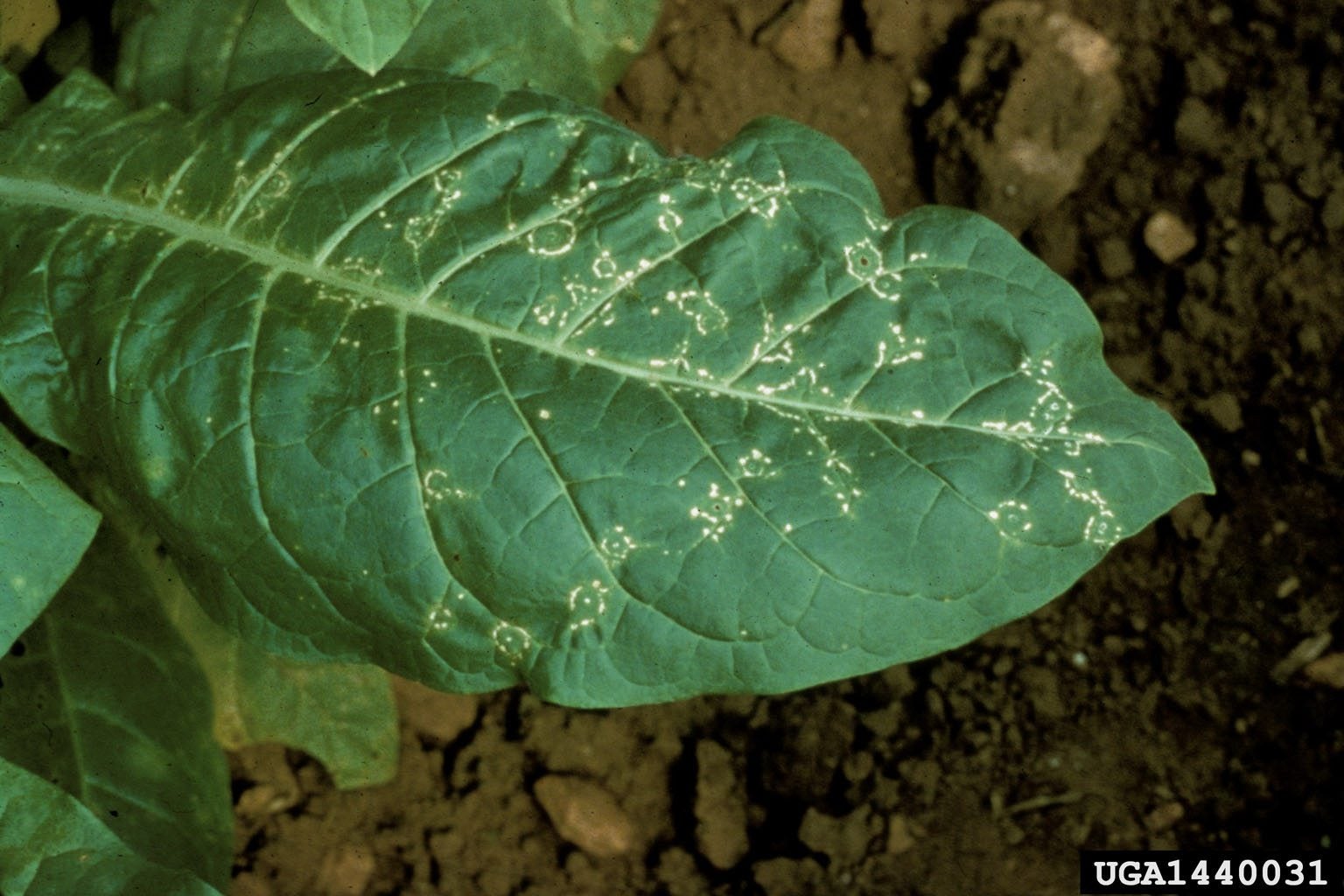Tobacco Ringspot Damage – Recognizing Tobacco Ringspot Symptoms


Sign up for the Gardening Know How newsletter today and receive a free copy of our e-book "How to Grow Delicious Tomatoes".
You are now subscribed
Your newsletter sign-up was successful
Tobacco ringspot virus can be a devastating disease, causing serious damage to crop plants. There is no method for treating tobacco ringspot, but you can manage it, prevent it, and avoid having it in your garden.
What is Tobacco Ringspot Virus?
Tobacco ringspot virus is a pathogen that in addition to tobacco can affect several crops including:
While the disease is caused by a virus, the virus is transmitted by dagger nematodes, microscopic worms as well as by tobacco thrips and flea beetles. In commercial farming, this disease can be a big problem for growing soybeans, although grape producers in the northeast also battle tobacco ringspot virus. Reductions in crops can be significant with tobacco ringspot damage. The biggest losses are seen when the seeds you use are heavily infected or when the infection occurs in younger plants. Tobacco Ringspot Symptoms in Your Plants Some of the signs of tobacco ringspot virus are stunting in young plants and damage to leaves. Look for leaves with yellow lines and small brown spots surrounded by a yellow edge. The leaves may also grow smaller. The worst-case scenario with tobacco ringspot is bud blight. This causes terminal buds to bend over and form a hook shape. These buds may even brown and drop off.
How to Manage Tobacco Ringspot Virus
The most fool proof way to manage this disease is to prevent it by growing plants that have been certified to be virus-free. This is because there is no real way of treating tobacco ringspot. If there is any reason to believe the virus could be an issue in your garden, you can have the soil tested for dagger nematodes and then use a pesticide to treat it if needed. If you do get an infection, you’ll need to remove and destroy the plants and be very careful about disinfecting any tools with bleach.
Sign up for the Gardening Know How newsletter today and receive a free copy of our e-book "How to Grow Delicious Tomatoes".

Mary Ellen Ellis has been gardening for over 20 years. With degrees in Chemistry and Biology, Mary Ellen's specialties are flowers, native plants, and herbs.